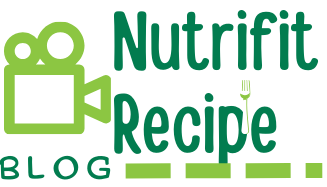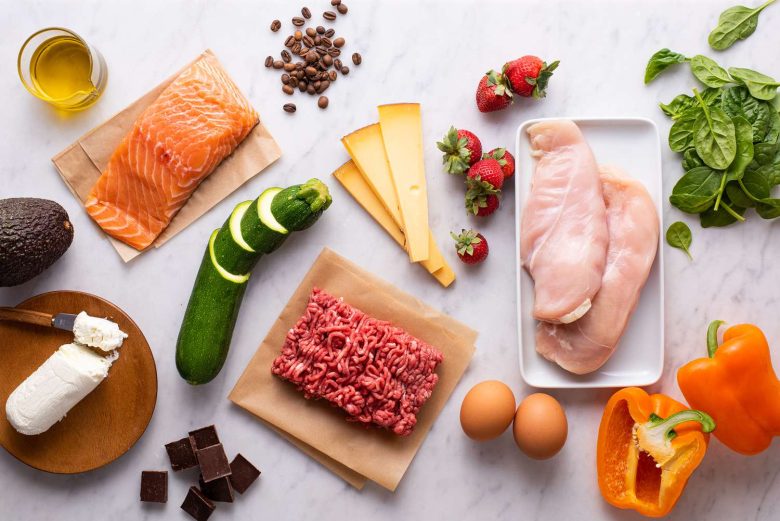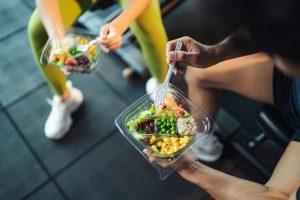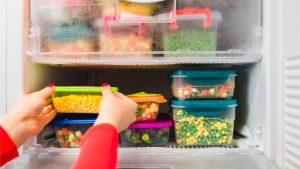Low-carb healthy foods for keto include seafood options and full fat dairy products with high amounts of butterfat content. Be wary of processed meats though as they often contain hidden carbs like fillers or additives – always check the label to avoid surprises!
Avoid starchy foods such as bread (white, brown and rye), bagels, cereal, pasta and rice in favor of non-starchy vegetables such as cruciferous vegetables and leafy greens.
Fish and Seafood
Fish and seafood are an invaluable addition to a keto diet, providing protein as well as essential fatty acids, vitamins, and minerals. When possible, opt for fresh wild-caught options over farmed or tinned options; salmon is particularly rich in omega-3 fatty acids while tuna offers vitamin D; other nutritious fatty fish options include mackerel, anchovy, and sardines.
Seafood is naturally low in carbs, making it an excellent fit for the keto diet. Furthermore, seafood provides numerous unsaturated fats which may benefit cardiovascular health, such as omega-3s (eicosapentaenoic and docosahexaenoic acids), vitamin B12, selenium, and zinc – plus the keto diet calls for ample amounts of these important micronutrients!
Try creating an easy yet delicious fish salad by mixing cooked fish with chopped avocado, cucumber and dill. For extra flavor and nutrients, herbs, spices or citrus fruits may also be added for extra flair.
Frying or overcooking fish can compromise its texture and nutritional value, so try instead steaming, sauteing or baking for maximum enjoyment of its natural flavors and textures.
Canned anchovy and sardines may have an oily texture, but they are an excellent source of protein and good fats. Add them to marinades, sauces and salad dressings to enhance flavor without increasing carb intake too quickly.
Eggs
Eggs provide protein and healthy fats essential for keto diets. Eating up to six per day is recommended in order to keep your carb count under 20 grams daily – all other sources should also be consumed as necessary.
Egg-based dishes such as omelets, frittatas and quiche can make delicious breakfast, lunch and dinner options. As snacks or additions to salads and other entrees. you may try scrambled, fried or hard-boiled eggs.
Eggs are a rich source of both protein and healthy fats, while being packed with vital nutrients. Their yolk contains vitamin D, folate and choline while their white provides B vitamins as well as selenium, calcium and iron – not to mention their essential omega 3s!
Weight-loss diets that restrict whole categories of foods may lead to nutritional deficiencies in the long run. For instance, certain versions of the egg diet recommend restricting or forgoing vegetables, starchy fruits and grains that provide essential fiber, antioxidants and other vital nutrients.
Try to meet your daily fiber requirements while on the keto diet by eating nonstarchy veggies like broccoli and zucchini; raw spinach contains only 0.6 g of net carbs per cup! Other low-carb options rich in fiber such as nuts, seeds, avocados and berries may also help meet this goal. These plant-based foods help ensure a balanced diet and prevent constipation as an adverse side effect of keto diets.
Peppers
Peppers pack plenty of flavor while only contributing a modest amount of carbs. Enjoy them raw with an healthy dip or use them to make a low-carb dish! Plus they provide vitamin C while offering an enjoyable crunchy alternative to high-carb snacks like potato chips or pretzels!
Green leafy vegetables are an integral component of a keto diet, providing essential vitamins and minerals such as magnesium and potassium as well as dietary fiber to combat constipation, one of the more frequent side effects. Try spinach, kale or collard greens in salads or as part of my keto-friendly taco stuffed yellow squash and peppers recipe!
Use non-starchy vegetables like cauliflower to replace starches in many recipes, like “rice” or noodles made from zucchini – making it easier for you to consume healthier meals while staying within your carb limit.
Cucumbers are another low-carb veggie that makes an ideal keto friendly food choice, boasting just 3.63 g of carbohydrates per 100 g. A medium cucumber provides just 3.63 grams per 100 grams, making them the ideal addition to a salad or sandwich topping! Plus they are an excellent source of Vitamin K and Folate!
Summer Squash
The keto diet focuses on providing your body with plenty of healthy fats and proteins while restricting carbohydrates. You should include foods such as meat, fish and poultry (in limited amounts), egg whites, dairy products, nuts seeds natural oils as well as some non-starchy vegetables into your meal plan.
Yellow summer squash contains just 2.11 grams of net carbs per cup, making it a suitable option for keto dieters. Other varieties such as kabocha and zucchini contain even fewer. You can enjoy roasting yellow squash as an accompaniment to salads and casseroles; create stuffed squash boats, zoodles or zucchini chips using similar cooking methods.
On a keto diet, any vegetables grown above ground are allowed in moderation; however, you should prioritize leafy greens (like kale, Swiss chard and spinach), broccoli, cauliflower, asparagus, mushrooms and peppers (both sweet and red) over other low-carb veggie choices like cucumbers eggplants or tomatoes.
Processed meats are allowed on the keto diet, although those containing added sugars should be avoided. Instead, choose lean options like bacon and chicken sausage, or traditional deli meats without added sugar such as ham which has zero net carbs per slice according to USDA data. You could also experiment with smoked turkey or pork shoulder for your protein source of choice.




